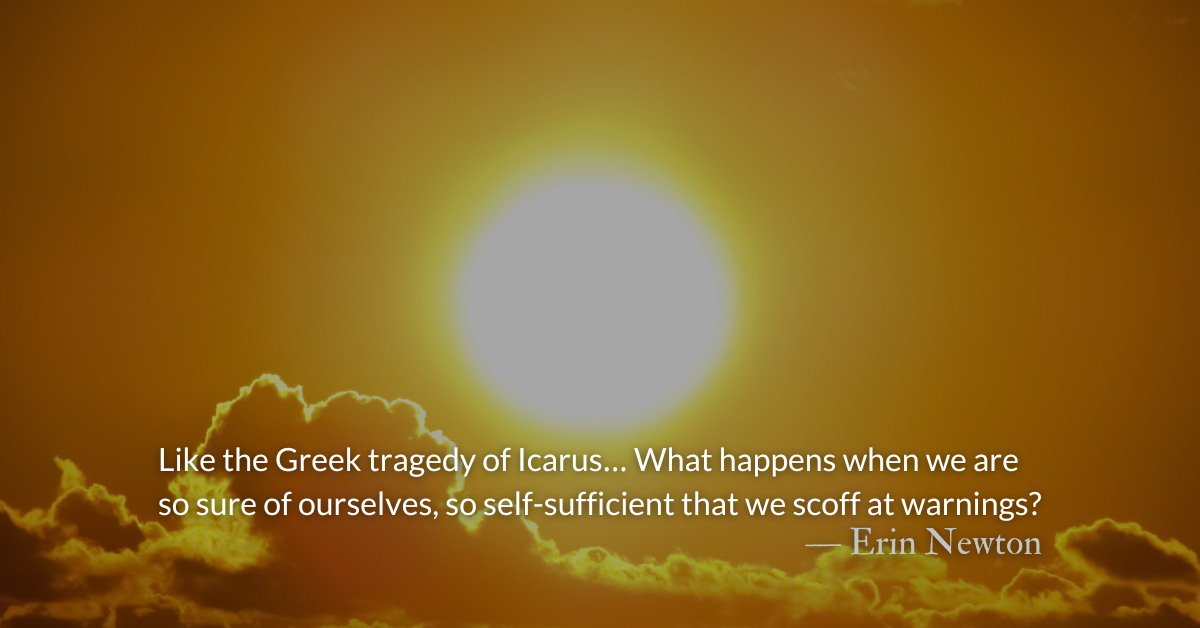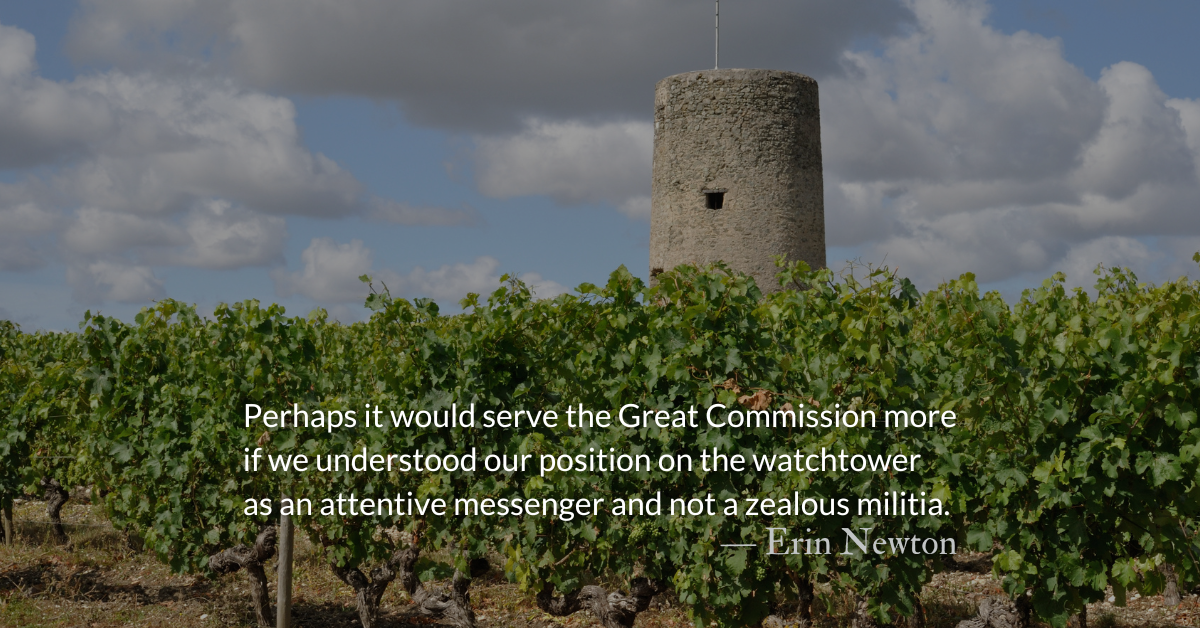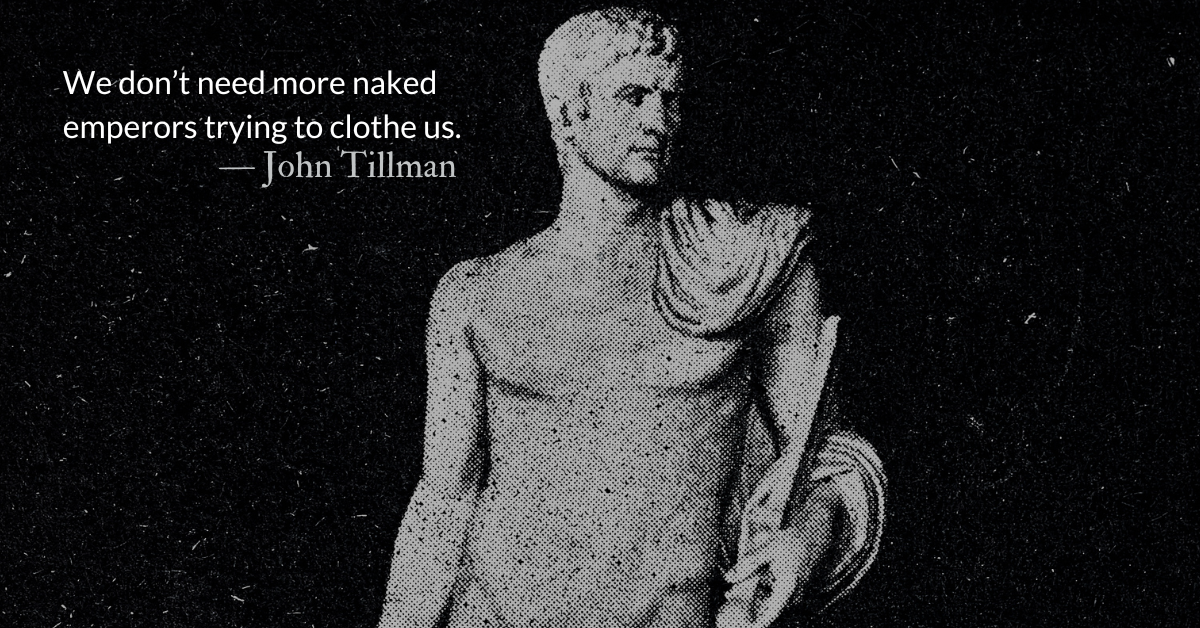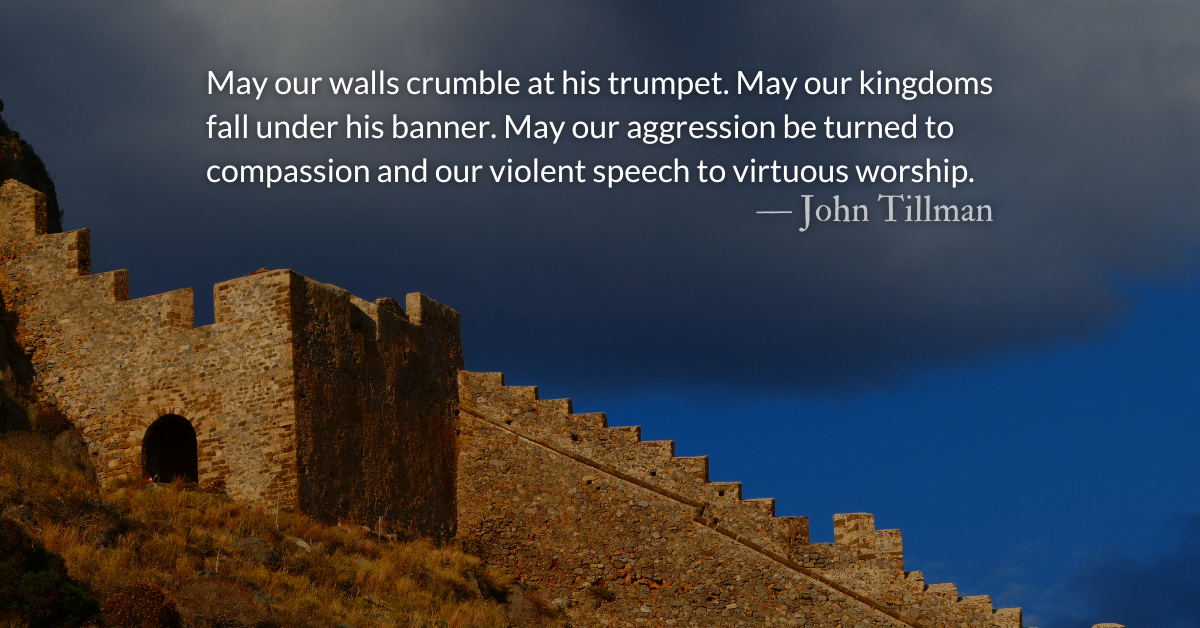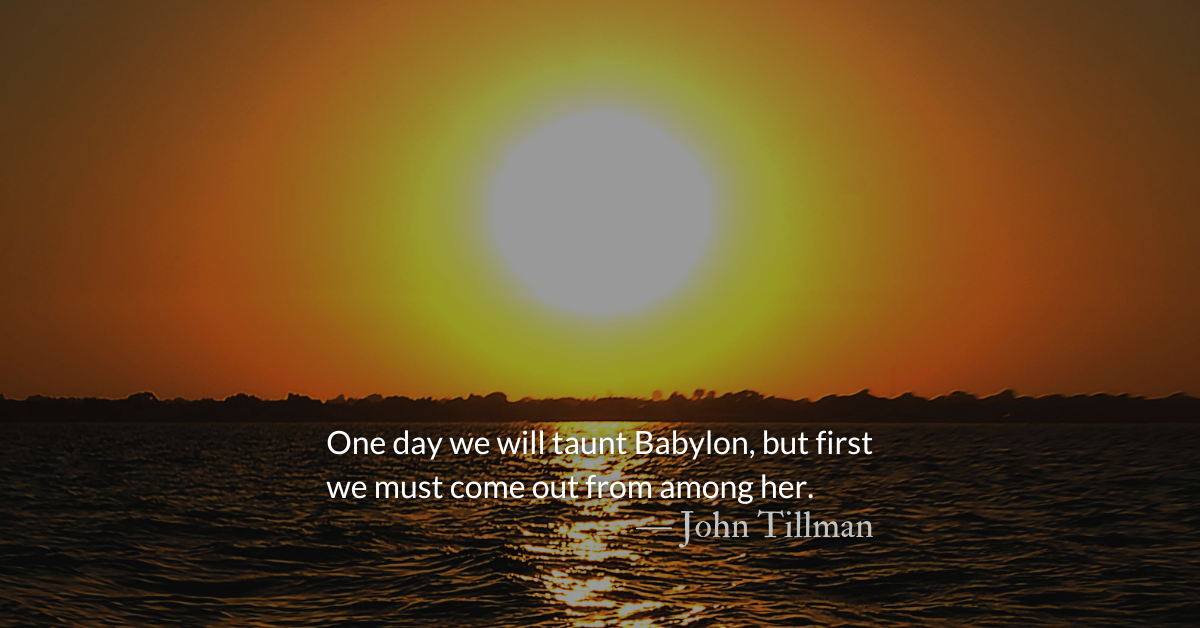Scripture Focus: Isaiah 22.12-13
12 The Lord, the LORD Almighty,
called you on that day
to weep and to wail,
to tear out your hair and put on sackcloth.
13 But see, there is joy and revelry,
slaughtering of cattle and killing of sheep,
eating of meat and drinking of wine!
“Let us eat and drink,” you say,
“for tomorrow we die!”
Reflection: Icarus and Israel
By Erin Newton
Icarus was a boy in Greek mythology whose father crafted for him waxen wings. He warned the boy not to fly too close to the sun or too low toward the sea. Icarus was careless and prideful and flew too close. His wings melted under the sun’s rays sending the boy to his death. Even today, people are warned, “Don’t fly too close to the sun!”
The prophet Isaiah turns his attention to Jerusalem again. It is another forecast of judgment upon Israel. The scene breaks with a vision of the people on the rooftops eating, drinking, and being merry.
They are celebrating when they should be lamenting. God commanded his people to repent and show their sorrow. Instead, the people are filled with pride, self-assuredness, and the sense that they are invincible.
Self-sufficiency blinds them from danger. The walls they have built, the weapons they have forged, the armies they have built up give them a sense of security even when God has promised destruction.
In the Valley of Vision, the people are blind. Instead of being alert, looking for God to act, they are drunk on their own power.
Like the Greek tragedy of Icarus, Israel carelessly journeyed outside the parameters set by God. What happens when we are so sure of ourselves, so self-sufficient that we scoff at warnings?
On a large scale, we operate with the attitude that all our ventures will not fail. We have made ourselves a firm foundation built upon our hard work. We rarely need to ask for help and think of ourselves as never wrong. The pains of the world around us are simply beyond the scope of our concern.
On a personal level, we trust in our own goodness. We have lived a Christian life for so long that our good deeds have certainly outnumbered our bad deeds by now… or so we hope. We have a tidy list of Christian chores to do each day that builds our sense of self-sufficiency. We lean heavily into our own understanding and trust in ourselves.
We like to think we aren’t so foolish as to ignore the call to repentance. When we hear about abuse, violence, slander, or intimidation done under the name of Christ, we are forced to react. Do we shrug it off thinking, “I could never commit that sin,” or do we respond with heartfelt grief and sorrow?
Divine Hours Prayer: The Morning Psalm
But let the righteous be glad and rejoice before God; let them be merry and joyful.
Sing to God, sing praises to his Name; exalt him who rides upon the heavens; Yahweh is his Name, rejoice before him!
Father of orphans, defender of widows, God in his holy habitation! — Psalm 68.3-5
Today’s Readings
Isaiah 22 (Listen -3:53)
Luke 4 (Listen -5:27)
Read more about A Sword Unsheathed
The watchmen called out warnings but no one listened…The fire alarms went off but no one fought the fire.
Read more about The Limits of Ministry
God requires watchmen on the wall to faithfully call out warning but holds people responsible for their response.

